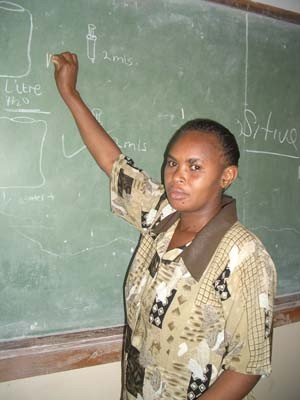
Elson Muulu is the principal teacher at the Kasama School of Nursing, in Zambia’s Northern Province. He manages the school, which currently serves 150 nursing students, and teaches together with four others.
Maintaining a full faculty of nursing teachers and assuring their job satisfaction is a big challenge for Elson. Although nurses form the backbone of Zambia’s health services, many nursing schools have difficulties attracting and retaining teaching staff. Salaries are low, the workload is heavy, and most health professionals prefer to live in large cities rather than the distant provinces and districts where many schools are located.
In Zambia, which has a deficit of almost 14,000 nurses nationwide, preserving and developing the profession and its training institutions is a matter of urgency. Several national strategies have been implemented to relieve this human resources gap.
The teachers at the Kasama School of Nursing are part of the Rural Retention Scheme, a program in partnership between the Ministry of Health and USAID that provides an incentive package designed to motivate and retain key health staff. The program has helped retain 33 nursing teachers nationwide and strengthen eight training schools. Prior to this program, three schools were closed due to insufficient staff. These schools have since reopened, thanks to the improved conditions.
“We are very happy that someone considered us as beneficiaries of the Retention Scheme. Conditions are really improving, and the extra income makes a big difference. I am now able to build a house. I will be staying in this job,” said nursing teacher Merrington Kabanda.
At the Kasama School of Nursing, long unfilled positions will now be taken by students currently completing studies for their credentials. Attracting more nursing teachers will, in turn, insure the education of increasing numbers of urgently needed nurses who will serve in the health workforce.







Comment
Make a general inquiry or suggest an improvement.